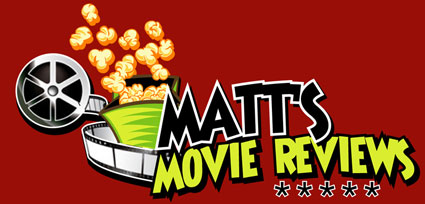The Zero Theorem is Terry Gilliam at his most chaotic, confusing and undisciplined.
While Gilliam’s penchant for not giving a big ol’ F has to be admired, The Zero Theorem is example of why so many studio heads are now screaming “I told you so!” in regards to Gilliam’s reckless abandon towards plot, logic, character … (the list goes on).
Fitting then that the film opens on the chaotic sight of a worm hole sucking anything in its path. Cue Christoph Waltz looking like Uncle Fester in the role of Qohen (pronounced Cohen) Leth, a computer genius who has such a disdain for humanity that the very idea of being touched repulses.
When he is charged by the mysterious Management (Matt Damon, looking like a villain from the 1960s Batman serial) to solve a complex mathematical theory that will prove existence is nothing, Qohen ironically finds himself more in tune with the human experiences of faith in a higher purpose, and love in the guise of online porn star Bainsley (Melanie Thierry).
Yet so cold, obscure and incredibly cynical is this world and the characters that inhabit it, and so conceited is Gilliams’s opinion of it, that instead of drawing audiences into this troubling vision of the future and feeling its tragic existence, we are constantly kept at arms-length to watch another visually nauseating, gibberish riddled, Gilliam freak-show.
Gilliam has stated The Zero Theorem completes his “Orwellian triptych” trilogy, that began with Brazil an 12 Monkeys, two films that are infinitely better in every way.
As scripted by Pat Rushin (who unsurprisingly had to reference screenwriting books, so incoherent his handling of this story) this is a classic case of Gilliam’s vision far outweighing his reach. Working on a very modest budget, Gilliam has created a future that is a clash of Minority Report and Lego Land, as seen through the eyes of Joel Schumacher (Batman & Robin).
Shots aplenty of Waltz thrashing around what looks like a games console controller -as if he was struggling with the last level of Pac-man- confounds in its banal oddity. Meanwhile, claustrophobic camera work (no doubt due to the restrictions of poorly funded production design) makes The Zero Theorem hard to sit through.
Most interesting is the role of religion and spirituality in what is a depressingly nihilistic and graceless world. Qohen resides in a burned out church, where the head of Christ is replaced by the new god: Surveillance. Posters and banners filter the streets for people to join the “Church of Batman the Redeemer.”
In the end it’s all interesting titbits that lead to nought, much like the effort put forward by the films actors, especially Christoph Waltz who at least tries to act this way through his mess of a role.
For a film supposedly pre-occupied with the nature of faith and meaning of existence, The Zero Theorem is without hope, depressingly spiritless and wasted in talent. Gilliam has often backed his maverick ways with solid moviemaking. The Zero Theorem only justifies why studios won’t take a chance on him anymore. It’s time for this maverick to rethink his strategy. |
